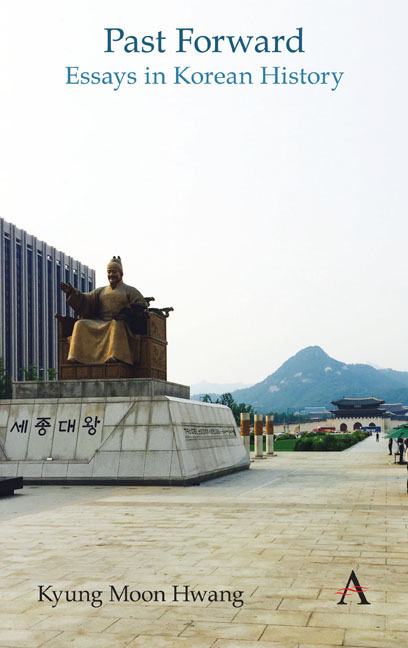Book contents
- Frontmatter
- Contents
- List of Figures
- Foreword
- Chronologies of Korean History
- Themes
- Acknowledgments
- Note on Romanization and Spelling
- Part I Circulating History
- Part II Durable Traditions
- Part III Ancient Remains
- Part IV Dynastic Depths
- Part V Modern Origins
- Part VI Challenges of Nationhood
- Part VII History Makers
- Part VIII External Presences
- 52 Korea's Complicated Relationship with China
- 53 How Chinese was Chinese History?
- 54 Tiananmen and the Power of History
- 55 Lotte between Korea and Japan
- 56 Comfort Women Beholden to History
- 57 A Modest Proposal for Dokdo
- 58 The General Sherman Incident of 1866
- 59 Depictions of the United States
- 60 Overcoming Old Views of Korea–United States Ties
- 61 Foreign Language Dependency
- Part IX Trials of Modernization
- Part X Gripped by the Past
- Index
57 - A Modest Proposal for Dokdo
from Part VIII - External Presences
- Frontmatter
- Contents
- List of Figures
- Foreword
- Chronologies of Korean History
- Themes
- Acknowledgments
- Note on Romanization and Spelling
- Part I Circulating History
- Part II Durable Traditions
- Part III Ancient Remains
- Part IV Dynastic Depths
- Part V Modern Origins
- Part VI Challenges of Nationhood
- Part VII History Makers
- Part VIII External Presences
- 52 Korea's Complicated Relationship with China
- 53 How Chinese was Chinese History?
- 54 Tiananmen and the Power of History
- 55 Lotte between Korea and Japan
- 56 Comfort Women Beholden to History
- 57 A Modest Proposal for Dokdo
- 58 The General Sherman Incident of 1866
- 59 Depictions of the United States
- 60 Overcoming Old Views of Korea–United States Ties
- 61 Foreign Language Dependency
- Part IX Trials of Modernization
- Part X Gripped by the Past
- Index
Summary
I am probably not alone in now tending to roll my eyes whenever I hear about the latest feud over Dokdo, known as Takeshima in Japan. In the spring of 2017, another controversy arose after the Japanese government approved privately published textbooks that refer to South Korea's control over these rocks as an “illegal occupation.”
There was nothing new about any of this, but it was enough for the South Korean government to publicly denounce the measure, which likewise changes nothing. South Korea will continue to possess these islets as its territory, the government and other groups in Japan will make their own counterclaims, and the usual emotions will boil on both sides, only to die down until the next round of verbal back-and-forth.
There is, in other words, a performative quality to this dispute, which has been raging since the 1950s. Weary parties on both sides, from civic organizations to public officials, seem to go through the motions in a tiresome ritual, like young adults in South Korea dragging themselves home to participate in ancestral ceremonies during major holidays.
Therefore, I wish to propose a first step in solving this recurring conflict in the spirit of reconciliation and relief: Quit talking about it. First must be the South Korean government, which has recently doubled down on propaganda efforts, from primary schools undertaking special Dokdo education programs to placards and pamphlets placed in train stations, airports, and even diplomatic compounds in foreign countries. This needs to stop. Lawmakers, civic organizations and private citizens can say what they want, but the South Korean government itself should modestly stay above the commotion, knowing that its control over Dokdo will never be endangered. The Japanese government would then follow suit.
This is unlikely to happen, of course, because the respective territorial claims are based not on practical considerations such as the negligible natural resources in Dokdo's surrounding waters, but rather on good old-fashioned tribalism, mixed surprisingly with the workings of democracy itself. Even if cooler heads prevailed in the two central governments, the hotter heads in legislatures, local governments, and civic organizations, as well as rabblerousers, will always find a plentiful supply of supporters to incite. And in a democracy, these voices must be accounted for, regardless of how irrational they might appear.
- Type
- Chapter
- Information
- Past ForwardEssays in Korean History, pp. 167 - 169Publisher: Anthem PressPrint publication year: 2019

